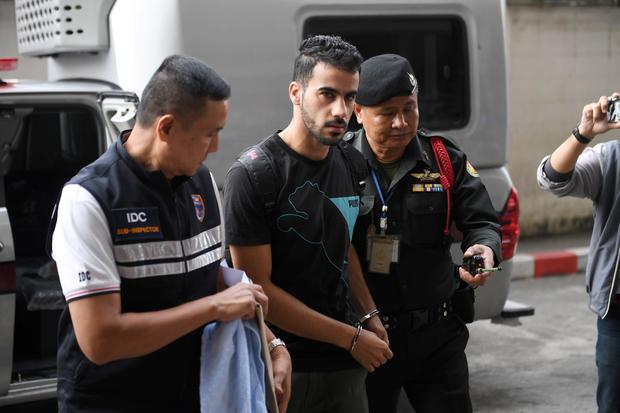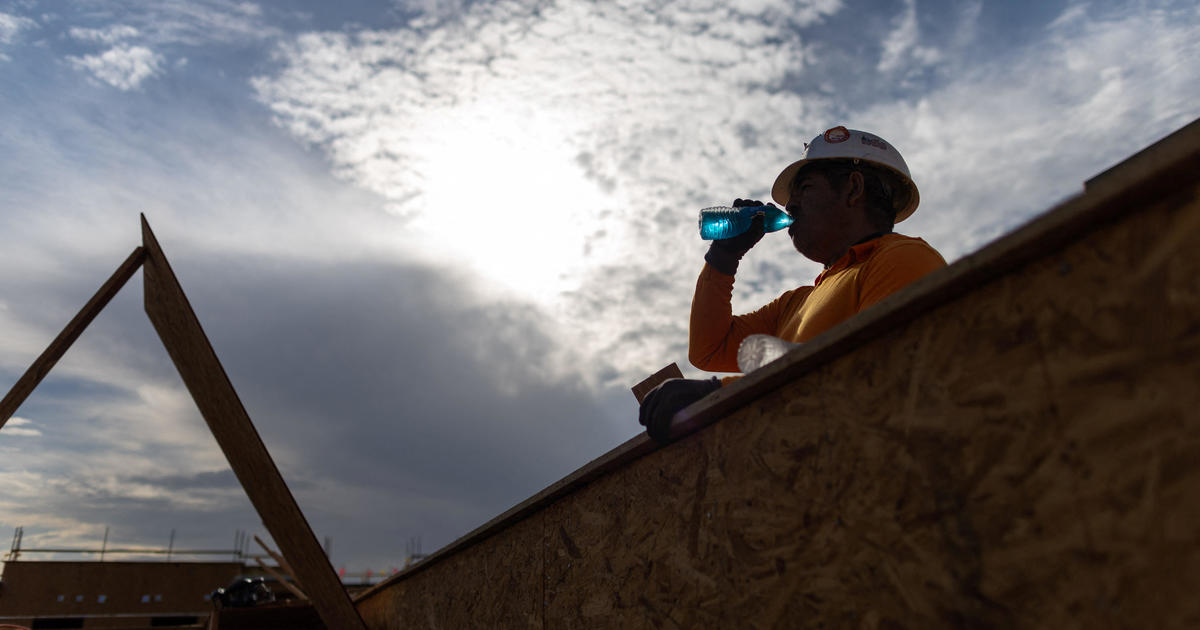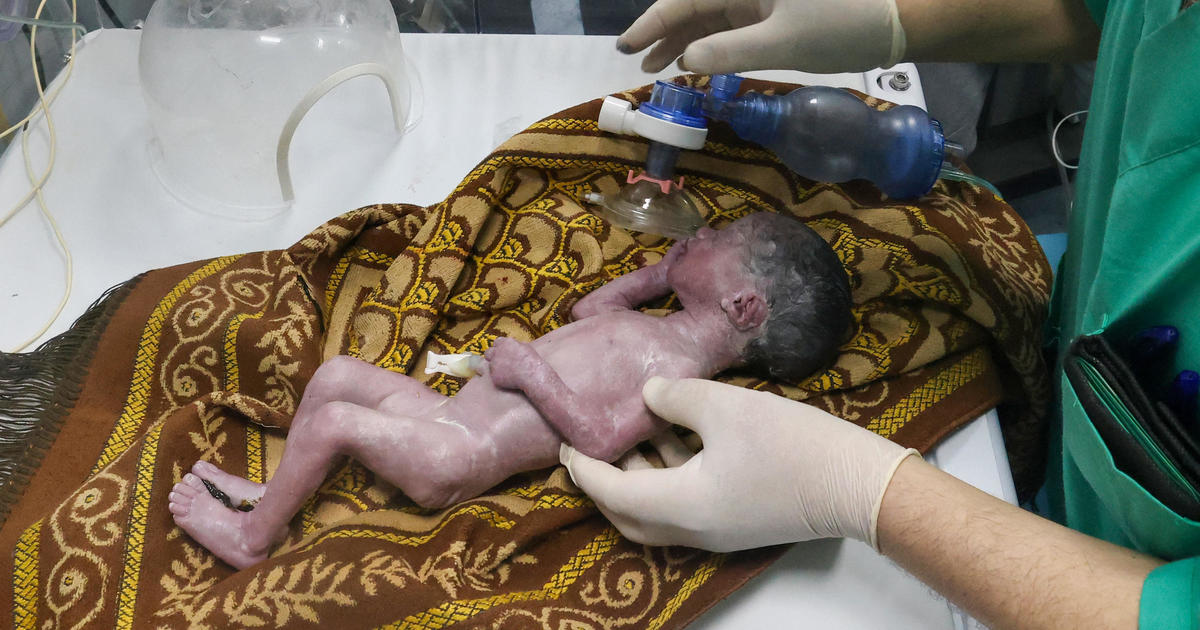Saudi woman barricades herself in Thai airport hotel in asylum bid
An 18-year-old Saudi woman who said she was fleeing her abusive family and seeking asylum managed to avoid a flight back to the Middle East by barricading herself in her hotel room and was in the care of United Nations Refugee Agency staff in Thailand on Monday.
Rafah Mohammed al-Qunun blocked the door to her hotel room at Bangkok, Thailand's main international airport and tweeted her desperate bid for asylum in almost real time. She avoided being put on a scheduled flight to Kuwait, where her family was waiting, Human Rights Watch deputy Asia Director Phil Robertson said on Monday.
Earlier, Robertson tweeted a brief video of al-Qunun in her room, saying simply, "I'm not leaving my room until I see UNHCR. I want asylum." The UNHCR is the United Nations High Commissioner for Refugees, also known as the U.N. Refugee Agency.
The chief of Thailand's Immigration Police later said al-Qunun would not be sent anywhere against her wishes.
"We will take her into Bangkok and provide her with safe shelter under the care of the UNHCR," Maj. Gen. Surachate Hakparn told media.
UNHCR staff met al-Qunun at the hotel, according to the agency's communications chief Melissa Fleming, who said on her own Twitter account that representatives had spoken to al-Qunun, "to assess her need for international refugee protection and find an immediate solution for her situation."
UNHCR said it would not release any further details of its meeting with al-Qunun out of concerns for her privacy.
The young Saudi woman said herself on Twitter, before photos showed her leaving her hotel room, that her passport had been returned to her and that she was with UN representatives.
Robertson, of HRW, earlier told CBS News the Thai government was blocking the UNHCR team at the airport from seeing al-Qunun, claiming there was clear coordination between the Thai government and the Saudis on al-Qunun's case.
Later, Robertson tweeted that Thai lawyers had filed for an injunction at the Bangkok Criminal Court seeking, "to prevent the deportation of #Rahaf to #Kuwait. Court should consider quickly because time is short & she faces dire peril if sent back from #Thailand. Will Thailand respect rule of law? #SaveRahaf."
The Associated Press reported just a couple hours later that the court had rejected the request for an injunction, according to a statement posted to Facebook by the NPS law firm. NPS said the request was rejected by the court due to a lack of evidence to support the young woman's claims and prove her identity.
The incident comes amid intense scrutiny of Saudi Arabia over its investigation and handling of the shocking murder of journalist Jamal Khashoggi last year, which has renewed criticism of the kingdom's human rights record.
A plan to escape
Al-Qunun told French news agency AFP that she ran away from her family while travelling in Kuwait because they subjected her to physical and psychological abuse.
She said she had planned to travel to Australia and seek asylum there, and feared she would be killed if she was repatriated by Thai immigration officials, who stopped her during transit on Sunday.
Al-Qunun said she was stopped by Saudi and Kuwaiti officials when she arrived at the Thai capital's Suvarnabhumi airport and her travel document was forcibly taken from her, a claim backed by Human Rights Watch.
"I ask the... government of Thailand... to stop my deportation to Kuwait," she said on Twitter. "I ask the police in Thailand to start my asylum process."
Shortly before the scheduled departure late Monday morning local time, al-Qunun posted a plea for people within "the transit area in Bangkok to protest against deporting me".
"Please I need u all," she wrote. "I'm shouting out for help of humanity."
Barricaded in her room
In a sign of growing desperation during the night, al-Qunun posted video of herself barricading her hotel room door with furniture.
If sent back, she said she would likely be imprisoned, and is "sure 100 percent" her family will kill her, she told AFP.
"Given Saudi Arabia's long track record of looking the other way in so-called honor violence incidents, her worry that she could be killed if returned cannot be ignored," Robertson told AFP.
The UNHCR's Fleming said on Twitter that under widely accepted international law and treaties to which Thailand was a party, asylum seekers cannot be returned to their country of origin if their life or well-being is deemed under threat, a principal known as non-refoulement.
The ultra-conservative Saudi kingdom has long been criticized for imposing some of the world's toughest restrictions on women.
That includes a guardianship system that allows men to exercise arbitrary authority to make decisions on behalf of their female relatives.
In addition to facing punishment for "moral" crimes, women can become the target of "honor killings" at the hands of their families, activists say.
Abdulilah al-Shouaibi, charge d'affaires at the Saudi embassy in Bangkok, acknowledged in an interview with Saudi-owned channel Rotana Khalijial that the woman's father had contacted the diplomatic mission for "help" to bring her back.
But he denied that her passport had been seized and that embassy officials were present inside the airport.
Saudi Arabia has come under fierce criticism following the murder of dissident journalist Khashoggi inside the Saudi Consulate in Istanbul consulate on October 2 -- a case that stunned the world.
Another Saudi woman, Dina Ali Lasloom, was stopped in transit in the Philippines in April 2017 when she attempted to flee her family.
Another refugee case stuck in Thailand
Al-Qunun is now the second citizen of an Arab nation to find themselves trapped in Thailand and begging for the mercy of the international community to avoid being sent home.
Hakeem al-Araibi, a semi-pro soccer player from Bahrain who was already granted asylum and living as a refugee in Australia, was stopped at the Bangkok airport on Nov. 27 and has since been imprisoned pending Thailand's review of Bahrain's extradition request.
Al-Araibi says he fears being tortured if sent back to Bahrain. Australia granted him refugee status and residency in 2017, and the Australian government has called for his return to his adoptive home.
Bahrain's ruling Sunni Muslim family, which has faced similar accusations as the Saudi leadership over the suppression of dissent and Shiite Muslim citizens, wants al-Araibi extradited home to serve a 10 year prison sentence handed down in absentia in 2014 for the vandalization of a police station.
Al-Araibi says he was playing for Bahrain's national team outside the country on the day the police station was vandalized, and that he is really being sought for his criticism of the royal family, his brother's political activism and his Shiite faith.
He also claims he was blindfolded and beaten by Bahraini authorities during a previous detention in his home country in 2012.
Thailand initially arrested the soccer player at the airport on a Red Notice issued for his arrest by the global Interpol police agency, at the request of Bahrain. However, that notice -- which appeared to violate Interpol's own rules on issuing warrants for idividuals with refugee staus at the request of their home countries -- was reportedly dropped.
On Dec. 11, however, a Thai court denied Al-Araibi's request for bail and said he could be held for 60 days pending Bahrain's formal extradition request. He remains imprisoned in the meantime.




